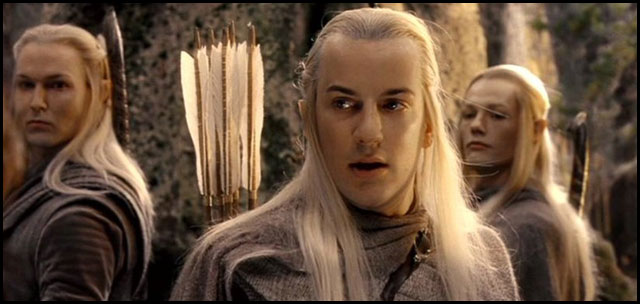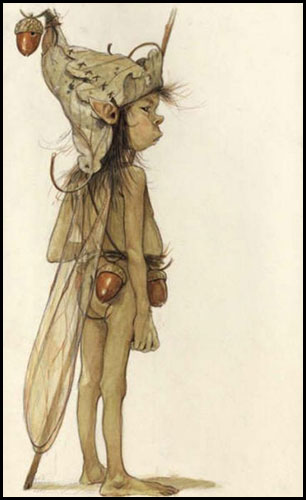I’m being flippant, of course, turning “elf” and “elves” into a verb. But more and more it seems to be a rising issue for fantasy writers as to whether or not one should include them in one’s fantasy world.
I suppose it depends on what the writer wants his or her world to be like, of course.
But let’s consider the reasons why it is an issue at all.
J.R.R. Tolkien is a big reason all by himself. The world he created in Middle-earth is so well established in readers’ imaginations now that it has become the Mount Everest of fantasy-world creation. How do you make yours distinctive, even when you want to do something similar?
Added to the problem of “not being Tolkien” is the matter that Tolkien tapped into some very primal aspects of the Elder People. He avoided the diminutive pixie-types that had become popular in the late Victorian/Edwardian ages — such as Tinkerbell in J.M. Barrie’s Peter Pan — in favor of the tall (adult sized) beings similar to the Celtic Sidhe or the elf-peoples of Northern folklore. When Tolkien has already absorbed the alternate options, it’s hard to do something different.
So what do we get? Lots of tall, exotically beautiful beings who look somewhat like ordinary humans who have “magical” powers. They may or may not be immortal, usually they are very long-lived at least. And they can do stuff we can’t. And author after author includes such beings because they are apparently “required” by the genre.
We’re talking about what gets called High Fantasy here, not the current trend of contemporary urban fantasy that seems to throw everything and the kitchen sink into the mix, from zombies and vampires to every species of magical being the author can lay his or her hands on.
I was talking with another author recently (at a writers’ conference where we were sharing a presentation on world-building and setting), who said he refuses to include “elves” in his fantasy population. He had, in fact, created a species that initially (in the first two books of his series) has all the presentation of being “elves”, but are in fact, something quite different (almost monstrous looking, given the cover art for the third volume). He was pleased with his choices (as any writer should be). But it amused him that a reviewer of the first volume had actually complained about the presence of the stereotypical “elves.”
This is the problem authors face in creating a fantasy world. There are some limits to your options in populating the world. If you get too “alien,” you start to move into the feel of “science fiction” and not “fantasy,” what with explaining and justifying the physical appearance of the “elves”. And you still have to deal with the creative impulse to include beings who are “like us but are not us.”
I’ve written of this problem before — I wanted to consider what worldly immortality might be like, if it were natural to at least some creatures of our world. It is, after all, what lies behind vampire stories: the desire to be immortal, to not die in this world, to continue our earthly existence. My interests in this question were similar to Tolkien’s, so I think it was inevitable that my creatures would end up being very similar to Tolkien’s elves. I’m certain I’ll be criticized for “copying” Tolkien, and that I’ve just transplanted Tolkien’s elves into my world and given them a different name.
I have my own well-thought-out reasons for including the not-Tolkien’s-Elves in my creation of Arveniem. But I will admit that I’ve read various fantasies, obviously influenced by Tolkien’s work, where I could not see the reasons why the author included elves, other than the “peer-pressure” of familiarity. There’s the Chinese Menu approach that has come out of role playing games of “types” of characters to include on a team, and some sort of “elf” is usually added to the mix for who knows what reason. It is these instances that generate the stereotype and the negative responses to the stereotype.
So, back to the original question: “to elve or not to elve?” Do you include elves (or whatever you want to call them – I call mine “Fynlaren”), or don’t you? What is their nature, if you do include them? What can they do? What can they not do? What do they add to your world that it did not have otherwise?
Fantastical creatures of any sort should have a point, for the author at least. Make it a good one.


